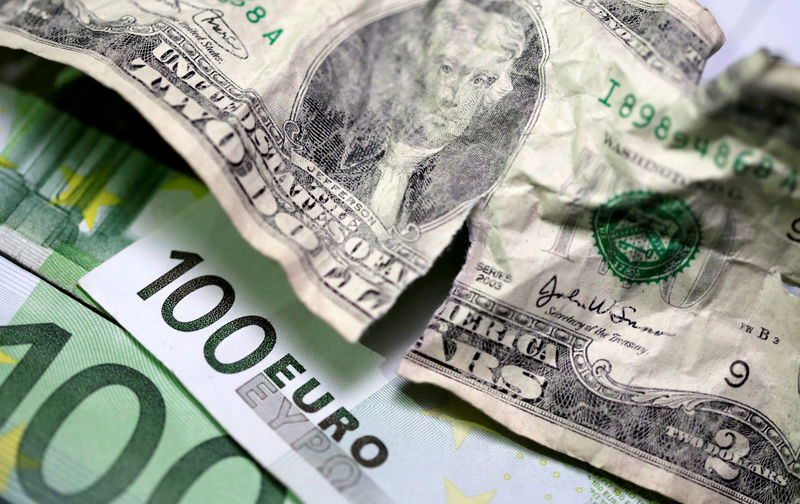Investing.com – The US dollar fell in early European trading on Monday ahead of the week’s key employment report, while the euro rallied after the first round of voting in the French elections.
At 05:30 ET (09:30 GMT), the Dollar Index, which tracks the greenback against a basket of six other currencies, was trading 0.3% lower at 105.255, near a one-week low.
Dollar slides ahead before payrolls are released
The country was hit by the strength of the euro on Monday, with the single currency carrying the biggest weight in the basket, but was already taking a back seat after Friday’s publication of softer-than-expected inflation figures.
The Federal Reserve’s favorite inflation measure, the PCE index, showed a cooling in inflation on Friday, raising expectations that the US central bank will cut interest rates later this year.
Much of the focus this US holiday week, with Thursday being celebrated as Independence Day, will be on Friday’s report as traders look for fresh indications of when the Fed could start cutting rates.
Economists expect the U.S. economy to add 189,000 jobs in June, following a bigger-than-expected increase of 272,000 the month before.
Ahead of non-farm payroll data, a report on Tuesday is expected to show it fell again in May. The June Fed meeting will be announced on Wednesday and the Fed chairman will appear at the European Central Bank’s annual forum in Portugal. .
The euro wins after the first round of the French elections
rose 0.5% to 1.0765, around the highest level in two weeks, after a victory for the French far-right in the first round of parliamentary elections fell slightly short of some expectations.
Marine Le Pen’s far-right National Rally party won the first round of France’s parliamentary elections on Sunday, securing 33% of the national popular vote.
The left-wing New Popular Front came in second with 28%, while President Emmanuel Macron’s centrist bloc reached 20%.
The National Rally’s winning margin was smaller than expected, leaving the final result dependent on party deals before the weekend’s second round.
“The results of the first round do not provide much certainty about the composition of parliament, and the second round scheduled for next weekend is in fact the big risk event,” ING analysts said in a note.
This political news overshadows data showing a deterioration across the eurozone last month as demand fell at a much faster pace despite factories cutting prices.
rose 0.3% to 1.2673, with sterling rising despite data showing growth slowing in June from the previous month.
S&P Global’s UK Manufacturing Purchasing Managers’ Index fell to 50.9 in June from 51.2 in May, with the final reading lower than 51.4 according to preliminary data.
The British general election takes place on Thursday, with the opposition Labor party widely expected to win the keys to Downing Street.
“There has indeed been very little doubt about a landslide victory for Labour, so the election should not be a major event for the markets. We suspect that a stronger-than-expected outcome from the populist/hard-Brexiteer Reform UK is the most tangible risk for a mild negative reaction to UK assets,” ING said.
The yen remains weak
In Asia, the price traded 0.1% higher to 161.02, remaining near its weakest level in 38 years.
The Japanese government unexpectedly revised first-quarter data on Monday, with the figures now showing a much deeper contraction than initially expected.
The figures presented a bleak outlook for the Japanese economy, and also raised doubts about how much room for maneuver the Bank of Japan has to tighten policy.
moved slightly higher to 7.2683, remaining close to levels last seen in November.
The Purchasing Managers Index data painted a mixed picture of the economy. Data on Sunday showed China’s manufacturing sector contracted for a second straight month in June, but data showed the sector grew at the fastest pace in three years.


